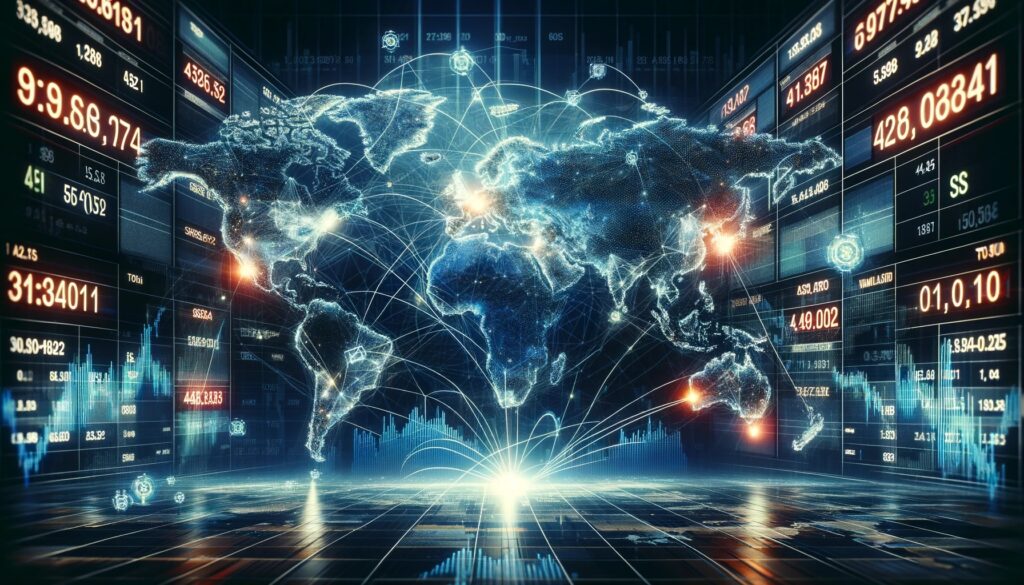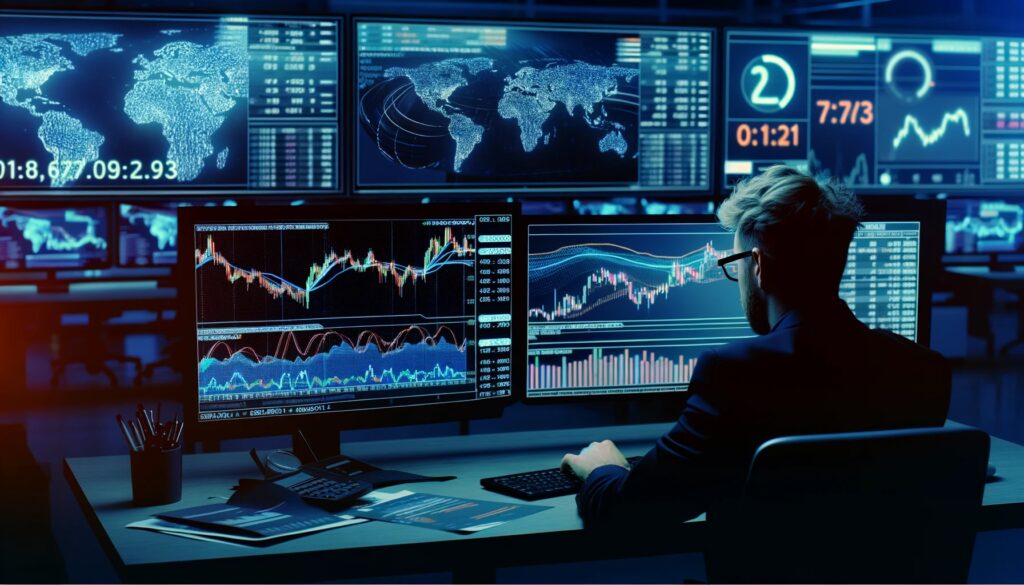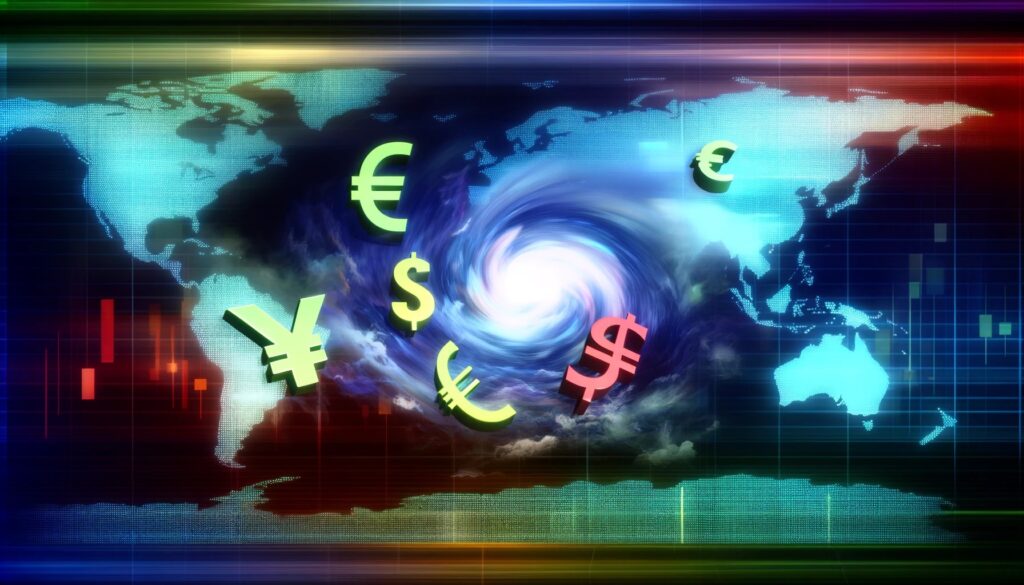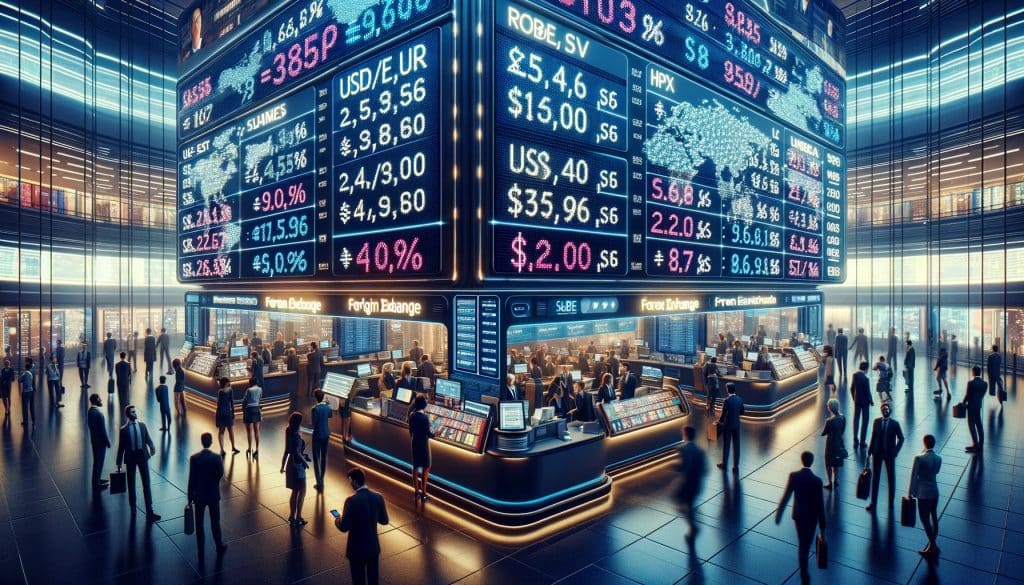The interplay between global events and Forex markets is a fascinating aspect of the financial world, revealing how international occurrences can sway currency values and trading strategies. In this comprehensive analysis, we explore the significant impact of global events on Forex markets, emphasizing the dynamic relationship between geopolitical, economic, and environmental factors and the world of currency trading.
The foreign exchange (Forex) market, the world’s largest financial market, is a barometer of global economic sentiment, influenced significantly by international events. This analysis delves into the nuanced relationship between such events and Forex market dynamics, offering insights into how traders can navigate these turbulent waters.

Understanding Forex Markets
The Forex market is a decentralized global marketplace where currencies are traded. It is essential for supporting international trade and investment. Currency values fluctuate based on a multitude of factors, including economic indicators, political events, and market sentiment. Understanding these dynamics is crucial for anyone participating in Forex trading.
The Role of Global Events in Forex Trading
Global events shape the economic landscape and, by extension, Forex markets. These events can be broadly categorized into political instabilities and conflicts, economic announcements, and natural disasters, each affecting the market in unique ways.
Political Instabilities and Conflicts
Political instability, such as elections, coups, or geopolitical tensions, can lead to uncertainty and volatility in the Forex market. For example, the Brexit referendum in 2016 caused significant fluctuations in the British pound, reflecting the market’s sensitivity to political events. Similarly, geopolitical tensions in the Middle East often lead to increased volatility in currency pairs involving the US dollar due to concerns about oil supply disruptions.
Economic Announcements and Policy Changes
Economic announcements, such as changes in employment rates, GDP growth, and interest rate decisions by central banks, are closely watched by Forex traders. For instance, when the US Federal Reserve announces an interest rate increase, it often leads to a strengthening of the US dollar, as higher rates attract foreign capital to US-denominated assets.
Natural Disasters and Pandemics
Natural disasters and pandemics can have immediate and profound effects on national economies and currencies. The COVID-19 pandemic serves as a prime example, where the initial outbreak led to a flight to safety, with investors flocking to the US dollar, and later, to significant volatility as countries’ economic outlooks diverged based on their response to the crisis.

Long-term Impacts of Global Events on Forex
Global events not only have immediate effects but can also alter the economic landscape in the long term, affecting trade balances, interest rates, and currency values.
Shifts in Trade Balances
A country’s trade balance can shift dramatically following global events. For example, a surge in commodity prices can lead to increased revenues for commodity-exporting nations, strengthening their currencies. Conversely, countries heavily reliant on imports may see their currencies weaken if trade conditions become unfavorable.
Changes in Interest Rates and Inflation
Interest rates and inflation are closely linked to currency values. High inflation can erode a currency’s value, leading to depreciation. Central banks might respond to inflation by raising interest rates, which can attract foreign investment and strengthen the currency, as seen in the aftermath of the global financial crisis when various countries adopted diverging monetary policies.
Currency Wars and Competitive Devaluations
In some cases, countries engage in competitive devaluations to gain a trade advantage, leading to currency wars. An example is the 2010-2013 period when countries like Japan, Switzerland, and the United States pursued policies that led to lower currency values to boost exports.

Case Studies
The 2008 Financial Crisis
The 2008 financial crisis is a stark reminder of how interconnected the global economy and Forex markets are. The crisis led to a significant depreciation of the US dollar initially as investors sought safety in other currencies and assets. However, as the US began to recover, and the Federal Reserve implemented quantitative easing, the dollar regained strength.
Brexit and Its Aftermath on the GBP
The Brexit vote in June 2016 caused one of the most turbulent periods for the British pound, which dropped to a 31-year low against the dollar. The uncertainty surrounding the UK’s future trade relationships and economic outlook led to prolonged volatility in GBP pairs.
The COVID-19 Pandemic and Forex Volatility
The COVID-19 pandemic caused unprecedented volatility in the Forex markets. Initial reactions saw a strong move towards safe-haven currencies like the US dollar and the Japanese yen. As the pandemic evolved, so did market dynamics, with currencies of countries that managed the crisis effectively appreciating against those that did not.

Strategies for Forex Traders
Navigating Forex markets during global events requires a comprehensive strategy focusing on risk management, staying informed, and portfolio diversification. Traders must remain adaptable, leveraging tools such as stop-loss orders, and staying abreast of global news to make informed decisions.
The Future of Forex Markets
The future of Forex markets will continue to be shaped by global events, technological advancements, and shifts in the global economic power balance. Emerging markets are playing an increasingly significant role, and digital currencies are introducing new dynamics into the traditional Forex market.
Conclusion on Global Events on Forex Markets
The impact of global events on Forex markets is profound and multifaceted. By understanding these dynamics and employing strategic approaches, traders can navigate the complexities of the market. The key to success lies in adaptability, rigorous analysis, and a deep understanding of the interplay between global events and market movements.

FAQs on Global Events on Forex Markets
How do global events influence Forex markets?
Global events can significantly influence Forex markets through changes in investor sentiment, economic stability, and geopolitical safety. Events such as elections, policy changes, and natural disasters can lead to volatility, affecting currency values as traders react to new risks and opportunities. For example, political instability can cause investors to favor safer currencies, while economic announcements might lead to speculation on future currency strength.
What strategies can Forex traders use to navigate market volatility?
Forex traders can navigate market volatility by employing risk management techniques, staying informed about global events, and diversifying their investment portfolio. Using stop-loss orders, setting realistic profit targets, and maintaining a well-informed perspective on international news are critical strategies. Additionally, traders might use technical analysis to identify potential market movements and hedge their investments to protect against unforeseen market changes.
How do political events influence currency values?
Political events, such as elections, changes in government, and geopolitical tensions, can have a profound impact on currency values. These events can alter investor confidence, leading to fluctuations in currency strength. For instance, a country facing political instability may see its currency depreciate as investors move their capital to more stable environments. Conversely, positive political developments can attract foreign investment, bolstering a currency’s value.
What role do economic indicators play in Forex trading?
Economic indicators are vital for Forex trading as they provide insights into a country’s economic health, influencing central bank policies and currency values. Indicators such as GDP growth, unemployment rates, and inflation figures can sway market sentiment. Traders use this information to predict potential movements in currency pairs, making decisions based on anticipated changes in economic conditions.
How can traders prepare for unexpected global events?
Traders can prepare for unexpected global events by maintaining a flexible trading strategy and keeping abreast of global news. Diversifying their portfolio to spread risk and employing stop-loss orders can mitigate potential losses. Building a reserve of capital to take advantage of new opportunities post-event is also a prudent approach. Regularly updating trading plans to adapt to the changing market environment ensures traders can respond effectively to unexpected events.
Can technological advancements impact Forex trading during global events?
Technological advancements significantly impact Forex trading during global events by providing traders with real-time data, advanced analytical tools, and automated trading systems. These technologies enable traders to quickly assess the impact of an event and adjust their strategies accordingly. Additionally, social media and news aggregators offer immediate access to global news, allowing traders to make informed decisions faster.





